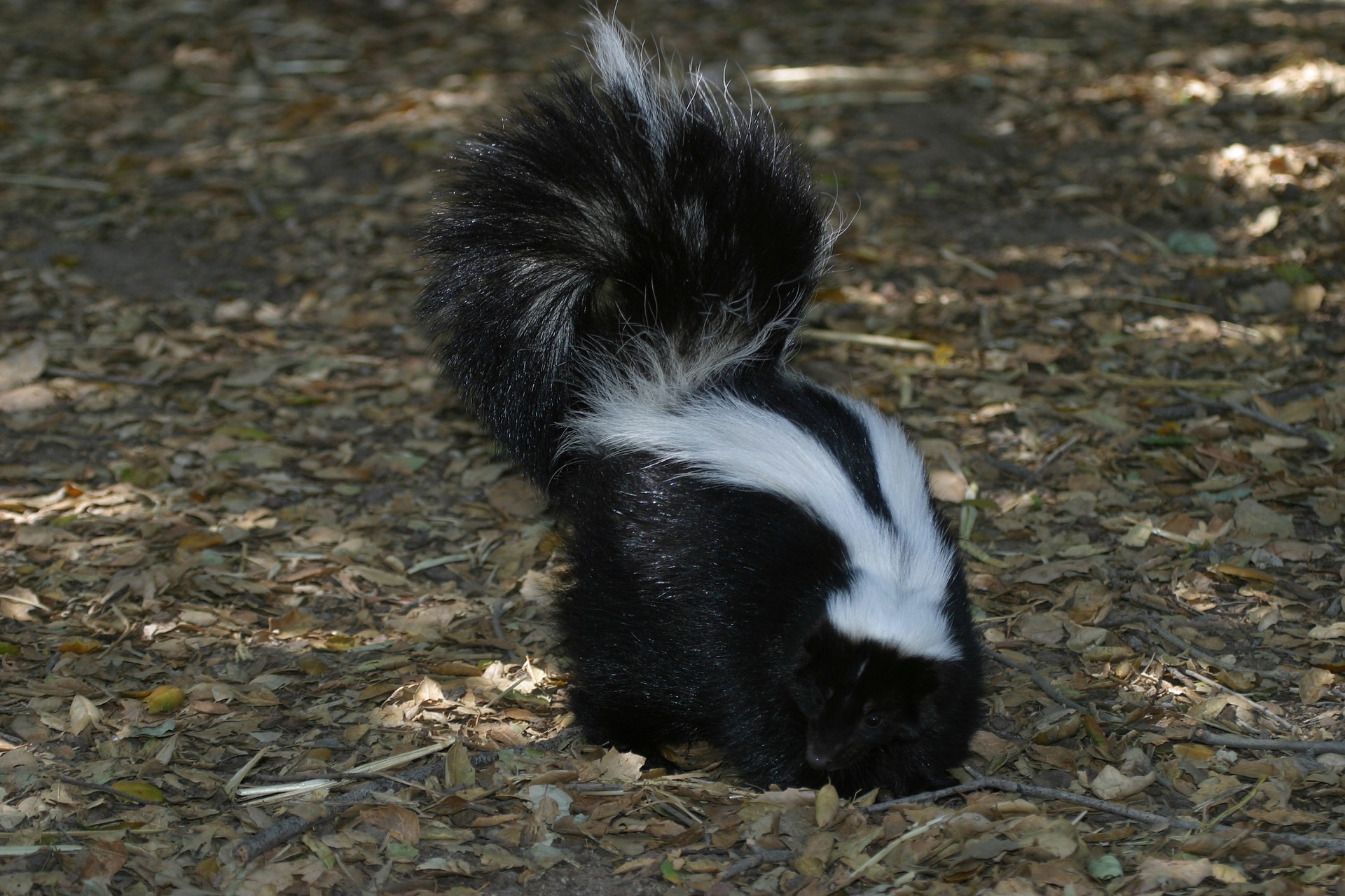
Call Now For Help With Skunks
Skunks
Skunks live in all parts of the continental United States. They are easily recognizable due to their black and white stripes and the distinct odor which they produce in self defense. Capable of diffusing over great distances, their musk is normally produced by specialized anal scent glands. Not only does their protective spray of odor fluid irritate multiple senses at the same time, it can even cause blindness in humans. Skunks are omnivorous and nocturnal in nature. Their diet is made up of amphibians, small insects, garbage and small rodents.
Physical Features
Skunks have a distinctive physical appearance. They have black fur which is marked up by white spots and stripes. Their overall size is similar to that of a domestic cat. In addition to that, skunks have triangular-shaped heads, black eyes and short ears. With short, stout legs, these animals have five-toed feet which are specially adapted for digging.
Natural Habitat
Skunks live in wooded areas, open fields, pastures and lands that border forested regions. They are mostly active during the night and prefer to live in burrows which have been left behind by other animals. However, they can make a home out of old, hollow logs, culverts and piles of brush. Skunks choose these locations so as to avoid detection by humans or predators. Whenever they invade residential areas, these animals create dens under porches and decks too.
Invasion
Skunks can actively enter yards so as to search for food or new places to create a den. Seeing as they are omnivorous, skunks will feed on literally any organic material. Whenever they are in residential areas, they can expand this diet so as to include garden plants, garbage or pet food that’s been left unattended.
Disease
While they are an effective method of insect control, much of the interaction between skunks and humans is negative in nature. These pests can transmit a variety of diseases to domesticated animals and humans. Examples of these are distemper, rabies and tularemia. In addition to that, skunks can carry parasites which spread diseases such as mites, ticks, fleas and tapeworms.
Property Destruction
Skunks have a habit of digging foliage up out of the ground. In doing so, they can damage yards, gardens or golf courses. In case they feel threatened or cornered by a human or predator, skunks shoot their defensive spray up to a distance of twenty feet. Not only can it cause intense pain in the eyes, it can also result in nausea. Skunks can also damage structures in your home. They can chew on insulation and ventilation as well.
Skunk Removal
While they generally keep to themselves, skunks can be a dangerous pest in and around your home. Therefore, if you experience some Nuisance Concerns With Skunks in your yard or premises, ensure that you contact a professional pest removal expert to get rid of the pest for you. This is so as to avoid coming into contact with the harmful spray which they produce. Professional pest removal technicians have the tools, training and knowledge required to get rid of skunks in a humane and effective way.
Control and Prevention
It is possible to make adjustments in your home and yard which ensure that skunks cannot invade again. You can secure trash cans, keep pet food indoors and monitor the levels of moisture around your house. This is because skunks enjoy to eat grubs and insects that live in moist areas. You should also make an effort to secure the areas where skunks can create dens. Examples of these are underneath porches and sheds. Furthermore, keep pets indoors at night. This is so that they do not come into contact with a skunk and get sprayed. Skunk control is best performed by a professional skunk removal expert. Call is if you are in need of skunk removal.

